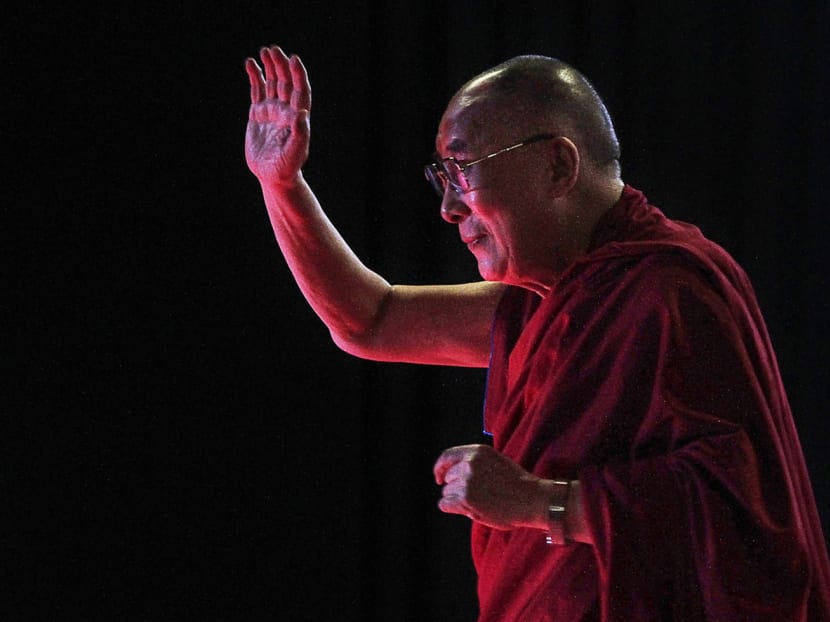Communist officials in Tibet punished for aiding Dalai Lama
BEIJING — Investigators have found that 15 Communist Party officials in Tibet joined underground Tibetan independence organisations, provided intelligence to the Dalai Lama and his supporters or participated in activities deemed harmful to China’s security, a party agency said yesterday.

The Dalai Lama greeting an audience in Kolkata, India, earlier this month. China has warned of stiff punishments for those who support the Dalai Lama or Tibetan separatism. Photo: AP
BEIJING — Investigators have found that 15 Communist Party officials in Tibet joined underground Tibetan independence organisations, provided intelligence to the Dalai Lama and his supporters or participated in activities deemed harmful to China’s security, a party agency said yesterday.
The publicising of party officials supporting Tibetan separatism was highly unusual and suggested continuing unrest in the Himalayan region, which has had a heavy security presence since a wave of rioting and protests against Chinese rule in 2008.
The wrongdoing was uncovered last year during an investigation into a small group of party officials, said a statement from the Communist Party Disciplinary Commission of Tibet, posted on its website. Fifteen of the officials received unspecified punishment for violating party and political discipline, the commission said.
It was not immediately clear why the cases were announced this week. The commission’s announcement gave no details of the groups the party members had joined, the intelligence they had provided or other activities that would have harmed national security. Calls to party spokespeople in Tibet were not answered and the discipline commission’s phone number was not publicly available.
Journalists’ access to Tibet is tightly restricted and all information from the region is extremely difficult to confirm. While details such as the name of the officials punished were not provided, it is likely that they were ethnic Tibetans who traditionally practise a form of Tantric Buddhism, of which the Dalai Lama is the spiritual leader.
Ethnic minorities, including Tibetans and Muslim Uighurs from the neighbouring Xinjiang region, make up about 6 per cent of the Communist Party’s 86 million members. They are recruited to fill posts at various levels as a key component of the party’s united front policy, although the top party official in provinces and regions such as Tibet is always a member of China’s overwhelming majority Han ethnic group.
A discipline investigator, Mr Ye Dongsong, was quoted in the party-run Global Times newspaper as saying that the Tibetan regional government should focus on neutralising separatists, maintaining social stability and more strictly monitoring projects in the region.
The announcement follows warnings of stiff punishments for those who offer support to the Dalai Lama or Tibetan separatism and shows the government has failed to eradicate support for the spiritual leader, even among party officials, said Ms Kate Saunders, communications director with the Washington DC-based International Campaign for Tibet.
She said failure has come despite efforts to guide people in the region into being more “patriotic”. “The Chinese government is literally seeking to replace loyalty to the Dalai Lama in Tibetan hearts and minds with allegiance to the Chinese party-state,’’ she said.
Beijing accuses the Dalai Lama, who fled to India after a failed 1959 uprising, of being intent on splitting Tibet from China, a charge he denies.
Many Tibetans say Beijing’s economic policies in the Himalayan region have mainly benefitted Chinese migrants, and resent the government’s strict limits on Buddhism and Tibetan culture. More than 100 Tibetans have self-immolated since 2009 to protest Beijing’s rule over the Himalayan region.
Beijing says it treats minorities in China fairly and that it has poured billions of dollars into raising living standards in Tibetan areas. AP





